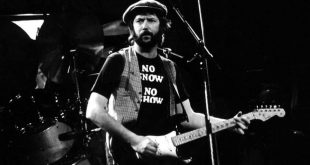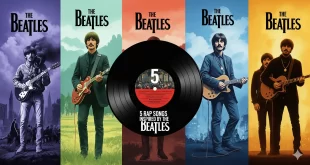LONDON — Keith Richards, the legendary guitarist of The Rolling Stones and one of rock’s most enduring figures, is famous for his razor-sharp tongue and brutally honest opinions. Over decades in the spotlight, he’s criticised plenty of artists, but few modern acts have sparked his disdain quite like Oasis.
The Gallagher brothers—Noel and Liam—led the Britpop powerhouse during the 1990s, producing anthems like Wonderwall and Don’t Look Back in Anger. To their fans, they were the torchbearers of British rock. But to Richards, they represented everything wrong with the modern rock scene: a lack of originality, a reliance on past glories, and an attitude that was more style than substance.
Why Richards Saw Oasis as “Copycats”
Richards has often dismissed Oasis as a derivative act, leaning heavily on the legacy of bands like The Beatles while failing to push the genre forward. While Noel and Liam openly praised John Lennon and Paul McCartney as major influences, Richards saw them as imitators—a pale reflection of rock’s golden era, including his own band’s groundbreaking work in the 1960s and 70s.
In interviews, Richards didn’t hold back. At one point, he bluntly called Oasis “crap,” adding:
“These guys are just obnoxious. Grow up and then come back and see if you can hang.”
His remarks resonated with some rock fans, particularly those who agreed that Oasis leaned too heavily on nostalgia instead of carving out a bold new path.
The Clash of Eras
As a founding member of The Rolling Stones, Richards helped define rock as a rebellious, ever-evolving art form. He played alongside icons like Jimi Hendrix, Bob Dylan, and John Lennon—artists who pushed boundaries both musically and culturally. In contrast, Richards saw Oasis as a band obsessed with recreating the past rather than innovating.
For Richards, rock ‘n’ roll wasn’t about perfect imitation—it was about shaking the foundations. He believed Oasis, despite their talent, lacked that daring spirit.
Other Rock Legends Agreed
Richards wasn’t alone in his critique. Paul McCartney once branded Oasis “unhip,” a particularly cutting remark coming from one of their biggest influences. Even George Harrison, usually more reserved in his public opinions, weighed in harshly:
“The music lacks depth, and the singer Liam is a pain; the rest of the band don’t need him.”
These comments from rock royalty cemented Oasis’ status as one of the most divisive bands in British music history.
Britpop’s Legacy and Richards’ Perspective
While Richards’ comments may seem harsh, they highlight a broader debate about rock’s evolution. For musicians of his era, authenticity was everything—being groundbreaking wasn’t just encouraged, it was expected. By the 1990s, however, commercial success often took priority over artistic risk-taking.
Oasis undeniably captured the spirit of a generation, selling out stadiums and defining the Britpop era. But for Richards, their success was bittersweet—a sign that rock had traded its raw, rebellious core for a more polished, marketable image.
The Final Word
Keith Richards has never shied away from controversy, and his feud with Oasis is just one example of his uncompromising approach to music and criticism. Whether you agree with him or not, his comments reveal a man fiercely protective of rock’s legacy and unwilling to let its spirit be diluted.
In Richards’ eyes, Oasis might have conquered the charts, but they failed the ultimate rock ‘n’ roll test: breaking new ground.







One comment
Pingback: Why Lemmy Thought The Rolling Stones Were “Shit” Compared to The Beatles - The Beatles